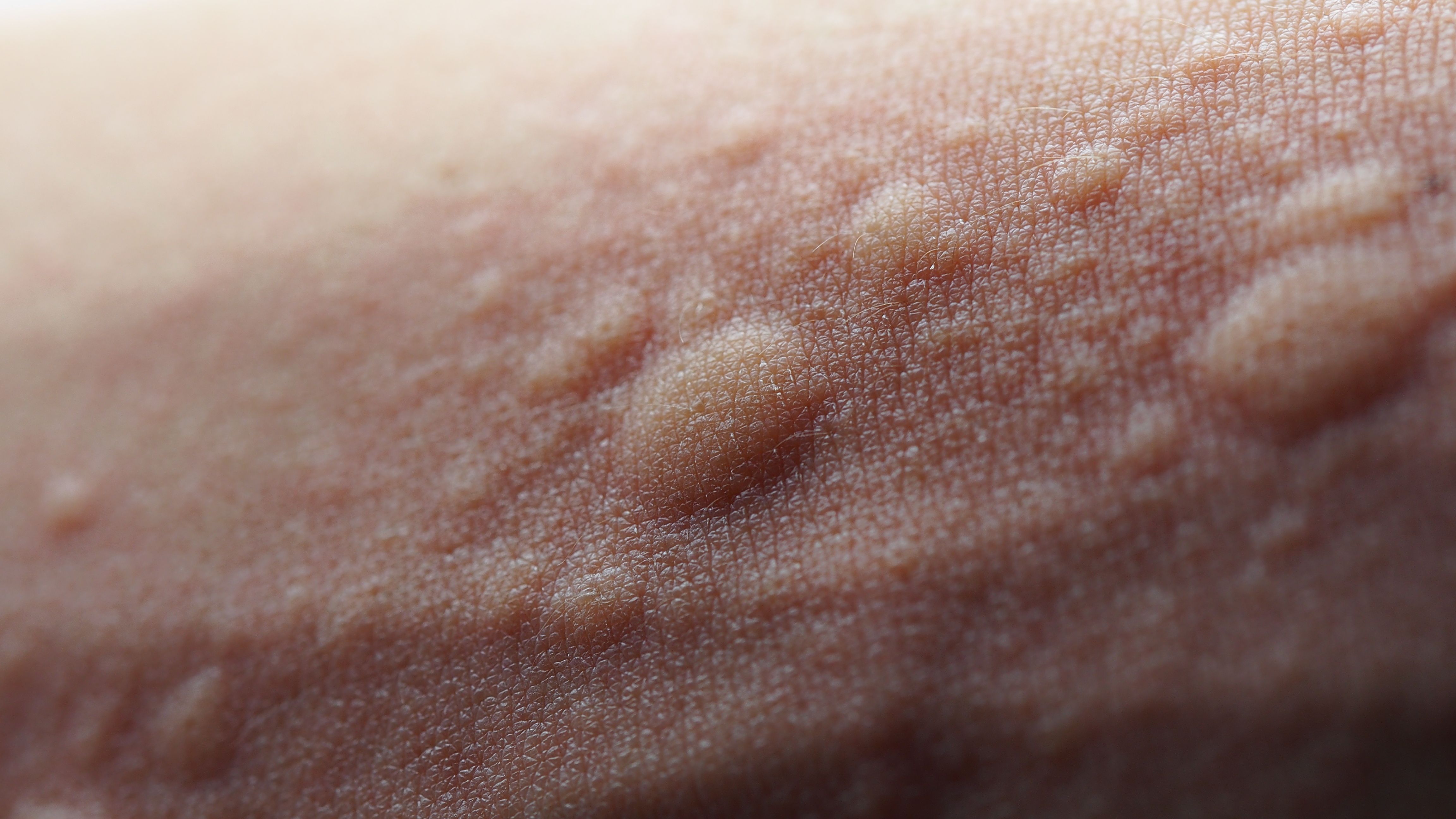- Acne
- Actinic Keratosis
- Aesthetics
- Alopecia
- Atopic Dermatitis
- Buy-and-Bill
- COVID-19
- Case-Based Roundtable
- Chronic Hand Eczema
- Chronic Spontaneous Urticaria
- Drug Watch
- Eczema
- General Dermatology
- Hidradenitis Suppurativa
- Melasma
- NP and PA
- Pediatric Dermatology
- Pigmentary Disorders
- Practice Management
- Precision Medicine and Biologics
- Prurigo Nodularis
- Psoriasis
- Psoriatic Arthritis
- Rare Disease
- Rosacea
- Skin Cancer
- Vitiligo
- Wound Care
News
Article
Remibrutinib Demonstrates Rapid Symptom Control in Phase 3 Trials for Urticaria
Author(s):
The highly selective oral BTK inhibitor is emerging in the treatment landscape as a potential therapeutic option for urticaria uncontrolled by H1-antihistamines.
Novartis has announced1 that in its phase 3 remibrutinib trials, REMIX-1 and REMIX-2, the Bruton’s tyrosine kinase (BTK) inhibitor met primary and secondary endpoints for the treatment of chronic spontaneous urticaria (CSU).
YSTUDIO/AdobeStock

The identical, randomized, double-blind, placebo-controlled trials seek to examine the efficacy, safety, and tolerability of remibrutinib 25 mg b.i.d. in 925 patients with CSU whose urticaria had previously been uncontrolled by first-line, second generation H1-antihistamines. According to Novartis,nearly 60% of CSU patients treated solely with antihistamines experience inadequate control of their condition and continue to be heavily affected by their symptoms, which can be debilitating in nature.
“BTK is an enzyme central to the release of histamine, and when spontaneously activated plays a critical role in the debilitating symptoms associated with CSU,” according to Novartis.
In both REMIX-1 (NCT05030311)and REMIX-2 (NCT05032157), researchers used weekly urticaria activity scores (UAS7) to track symptom and disease activity. UAS7 was measured at baseline and on a weekly basis thereafter. As early as week 2, remibrutinib led to significant improvement in UAS7 scores, indicative of a rapid onset of action.
By week 12, however, patients in both studies demonstrated absolute change in UAS7 score from baseline, or the primary endpoint of both studies.
In preceding phase 2 studies of the drug for this indication, remibrutinib was well-tolerated and demostrated a rapid onset of action.
“CSU is a distressing and unpredictable disease, and patients urgently need effective, convenient and well-tolerated treatments that can provide rapid and sustained relief from the relentless itching and deep tissue swelling that greatly impact their daily lives,” said Shreeram Aradhye, MD, in a press release1 from Novartis. Aradhye is president of Global Drug Development and chief medical officer of Novartis.
“These positive top-line results from the Phase III REMIX studies confirm that remibrutinib, a highly selective BTK inhibitor, has the potential to be a first-in-class, oral treatment for people living with CSU whose symptoms are refractory despite use of antihistamines,” Aradhye said.
The ongoing studies will continue through week 52 with a long-term extension trial to follow. Beginning in 2024, Novartis intends to submit REMIX trial data to global health authorities.
Reference
- Novartis remibrutinib phase III trials met their primary endpoints and showed rapid symptom control in chronic spontaneous urticaria. Novartis. August 9, 2023. Accessed August 10, 2023. https://www.novartis.com/news/media-releases/novartis-remibrutinib-phase-iii-trials-met-their-primary-endpoints-and-showed-rapid-symptom-control-chronic-spontaneous-urticaria.
Newsletter
Like what you’re reading? Subscribe to Dermatology Times for weekly updates on therapies, innovations, and real-world practice tips.











